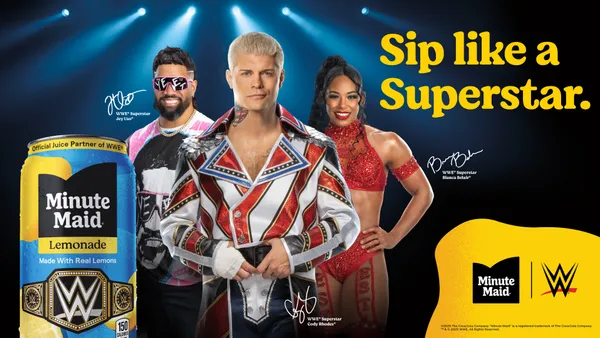Dive Brief:
- Facebook, in an internal data analysis published on its IQ page, found 79% of women and 75% of men favor brands that promote gender positivity in their messaging.
- The research said that U.S. consumers overall felt 8% to 10% more positively toward brands promoting gender-positive messaging, and that the tactic also created greater loyalty with 48% of men and women. Fifty-one percent of women reported preferring to shop from those brands and 45% of men said the same.
- Facebook offered actionable takeaways for marketers, including: sharing gender-positive imagery; thinking about how brands can support women, with the #FearlessGirl campaign from State Street and McCann Erickson as a standout example; encouraging companies to add women to their staff; and focusing on avoiding sexual stereotypes to instead portray people as multifaceted.
Dive Insight:
Diversity has become a more pressing topic in the industry in recent years, with growing calls to end gender bias at award shows and findings from leading trade groups like 4A's underscoring just how homogenized marketing is both in its work culture and consumer-facing strategies. The U.K.'s Advertising Standards Authority this summer banned gender stereotypes in advertising, and Facebook's study outlines how focusing on positive messaging instead won't just earn brands a pat on the back from progressives — it will actually drive business results.
It's a strategy that's been enacted by big-name brands like Carl's Jr./Hardees, infamous for its 'bikini babes' advertising, which earlier this year pivoted focus to more socially-conscious ads. The challenge for brands, as the study highlighted, is crafting messaging that isn't just lip service but feels authentic — an issue that's usually solved by simply hiring a more diverse workforce that can bring relevant perspective.
Even though gender-positive messaging can be a winning tactic, marketers must be careful to not come off as tone deaf. A body wash packaging play by Dove from May, part of its long-running and otherwise successful "Real Beauty" campaign, was met with widespread derision for drawing unflattering comparisons to women's figures.














